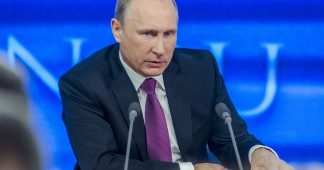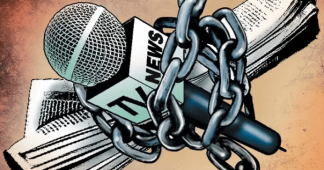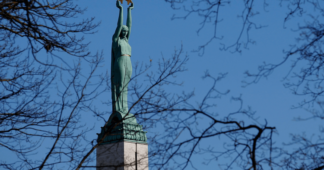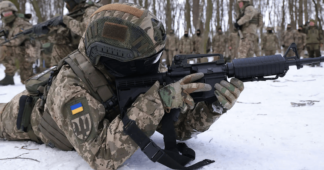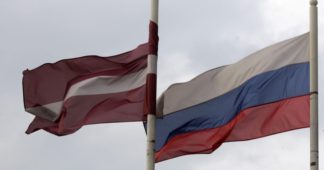Marat Kasem from Sputnik Lithuania has been accused of espionage and could face up to 20 years behind bars
Latvia has arrested the editor-in-chief of the Lithuanian branch of the Russian Sputnik news agency. Marat Kasem was taken into custody on a court order, his lawyer announced on Thursday.
The journalist is accused of breaching EU sanctions and has been charged with espionage, Sputnik reports.
Kasem’s lawyer, Imma Jansone, has not yet been able to review his case materials, according to the news outlet. Jansone asked the court to release the journalist on bail but a judge decided to leave him in custody. Kasem was immediately transferred to Riga’s central jail on Thursday.
Kasem is a Latvian citizen, though he has been living in Moscow for several years, working for the Rossiya Segodnya media group, which Sputnik Lithuania is part of. Before New Year’s Eve, he returned to Latvia for family reasons.
Moscow will request the assistance of international organizations over Kasem’s arrest, Russian Foreign Ministry spokeswoman Maria Zakharova said. She also slammed the move as a violation of Latvia’s international commitments regarding freedom of speech protections.
Talking to the RIA Novosti news agency, the head of the Rossiya Segodnya media group, Dmitry Kiselyov, branded Kasem’s arrest “absurd” and “lawless.” He also called such actions a “dangerous tendency” affecting all of the EU. Kiselyov said that Kasem previously frequently spoke of a feeling of being politically persecuted.
Kasem had already faced persecution in the Baltic States before his arrest. Back in 2019, he was detained on arrival to the Vilnius airport and labeled “a threat to the national security” of Lithuania. He was then deported to Latvia. At that time, it was revealed that the journalist was put on a blacklist of people barred from entering Lithuania altogether.
In 2018, another Russian journalist, Sputnik Latvia’s editor-in-chief, Valentin Rozentsov, was detained at Riga airport. He was held in police custody and interrogated for 12 hours before being released. In 2021, Moscow slammed persecution of Russian journalists in the Baltic States as a “flagrant attack on democracy” and considered what it called degradation of media freedoms there “concerning.”
The developments come as the three Baltic nations keep one of the most hardline stances on Moscow’s actions amid the ongoing conflict in Ukraine. Last month, Latvia, Lithuania, Estonia, as well as Poland and Slovakia all lodged a formal protest against French President Emmanuel Macron’s proposal that NATO should offer Russia security guarantees, according to Reuters.
RT
Also read
A new line of tension in relations with Russia has been created in Latvia
We remind our readers that publication of articles on our site does not mean that we agree with what is written. Our policy is to publish anything which we consider of interest, so as to assist our readers in forming their opinions. Sometimes we even publish articles with which we totally disagree, since we believe it is important for our readers to be informed on as wide a spectrum of views as possible.
